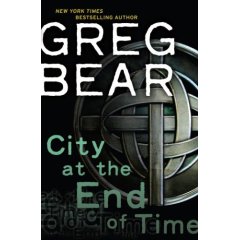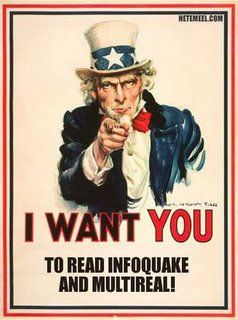Every so often on my blog, I do book reports. Not really reviews, as such, but more capsule commentary on whatever I’ve been reading lately. So what have I been reading lately?
Well, ever since turning in Warhammer 40K: Dawn of War II, I’ve found myself in the unique position of not having to do a lot of research. I’ve been working on the scripts for Cinderella: From Fabletown With Love, but most of the reading I’ve been doing for that has been short-ish, bits and pieces here and there. And so the time that I’ve got set aside to read for part of every day (while I walk for 30 minutes in the morning, primarily) has been completely free and open. I could read anything I wanted…
And so I did.
George Mann’s The Affinity Bridge
I’ve been looking forward to this book for ages. In addition to being the head of Solaris Books and Black Library (and one of my favorite drinking buddies), George Mann is a terrific writer, a fact that not many people know… yet. A lot more people are going to be discovering that fact very quickly, I imagine. His first full length novel, The Affinity Bridge, comes out from the UK press Snow Books about any minute now, it’s not out already, and will be coming out from one of the larger US houses sometime thereafter (I’m not sure if it’s been announced yet who the US publisher is, so you won’t be hearing it from me). I read parts of the manuscript early on, but this was the first chance I’d had to sit down and read the whole novel from start to finish.
The Affinity Bridge is the first “Newbury & Hobbes Investigation”, and hopefully the first of many. Sir Maurice Newbury, scholar with the British Museum, expert on the unexplained and the occult, and occasional agent of Queen Victoria, is aided by his new assistant Veronica Hobbes, who may be more than she appears. Veronica is not a stranger to the unexplained and the occult herself, as the older sister of a girl who is haunted by visions of the future. The London that Newbury and Hobbes inhabit is almost the one that history records, with a few tweaks here and there. Airships sail across the smoky skies, piloted by brass automata, undead “revenants” prowl the fog-wrapped streets hungry for the taste of human flesh, and the ghosts of dead policemen bring a bloody justice to criminal who have escaped the law’s grasp. Queen Victoria continues to rule, her life artificially extended by steam-driven cybernetics.
The Affinity Bridge is a nicely constructed “fair play” mystery, a Steampunk adventure, and an alternate history with intriguing worldbuilding, all rolled into one. To share even a few of my favorite moments from the plot would threaten to spoil some of the surprises, but suffice it to say that this is a book that features a dude in fist fights not only with zombies and brass robots, and that those aren’t even the best bits.
Mann’s first novel is absolutely an enormous pile of awesome, and is highly recommended to anyone who thinks that fist fights with zombies and steampunk robots might be their cup of tea.
Greg Bear’s The City at the End of Time
I read a capsule review of Greg Bear’s latest novel, The City at the End of Time, and had to check it out. People shifting their consciousnesses across alternate dimensions? Teenage runaways in modern America dreaming of a doomed city at the end of time? Vast libraries, containing every possible book? It sounded like it was right up my alley.
And it is. I think this may be the first of Bear’s novels that I’ve read, but I’ve already added a few more to my To Read pile. This is a hugely ambitious book, and one that plugs into many of my personal obsessions. The first moment that one of the characters started talking about the “fictional encyclopedia” commissioned in the 1920s by an Argentinian named Borges, I knew that this was a story for me. (Though, interestingly, the story seems to take place in an alternate history in which Borges never wrote fiction.) The mentions later on about the “Last Redoubt” only sealed the deal.
The action in City at the End of Time alternates between modern day Seattle and the Kalpa, the titular city at the end of time. In Seattle we follow a teenage runaway and a busker, both of whom visit the end of time in their dreams, and both of whom are able to affect causality in the near term, and a vagrant who is possessed by a consciousness capable of shifting from one parallel worldline to another. In the Kalpa, we follow two young “ancient breeds” (genetically engineered humanoids who are approximations for what primordial humanity–i.e. us–might have been like), who play host to the two dreamers in modern day Seattle, and a “Keeper” involved in a last-ditch effort to stem the tide of unreal Chaos that threatens to engulf the last remnants of the universe.
The far future sections of the novel are really far future, and it’s here that the novel really starts to sing. The following are two paragraphs from just one of the many potted histories that are threaded through the book, hinting at the vast gulfs of time connecting now to then.
“As for the late Trillennium, in the shadow of the Chaos: broad legends describe the age of the Mass Wars. Bosonic Ashurs had returned from their mastery of the dark light-years, seeking ascendance over all… and were subdued by the mesonic Kanjurs, who in turn were defeated by the Devas–patterned from integral quarks. Devas were then forces to give way to the nootics. Nootic mater was hardly matter at all–more like a binding compact between space, fate, and two out of seven aspects of time.
The nootics–calling themselves Eidolons–gathered survivors from the last artificial galaxies and forced nearly all to convert. The last remnants of old matter were preserved and transported to a number of reliquaries with the longest continuous histories–including Earth.”
This is a terrifically smart book, but in many places a very funny one as well. While not overlong, it is considerable dense in places, and having finished the book I tend to think that the journey might have been more enjoyable than the destination. But it’s a wide-ranging, mind-expanding trip of a book, and something that science fiction needs more of. Recommended.
Daryl Gregory’s Pandemonium
A few weeks ago, I’d never heard of Daryl Gregory. Then I bumped into Gary K. Wolfe in Denver as he was reading Gregory’s first novel, Pandemonium, and the brief description of it that Gary shared was more than a little intriguing. Then I met Daryl himself the next day at the bar, and we struck up a conversation. He seemed like a sharp guy, so when I got back to Austin I dug up a recent “year’s best” collection and read Gregory’s “Unpossible.” Then I read “Damascus.” Then I read “Second Person, Present Tense,” and “Dead Horse Point,” and “The Continuing Adventures of Rocket Boy.” And so on, and so on. In the course of a couple of days I read a half-dozen or so of Gregory’s stories, and quickly came to a conclusion: Daryl Gregory can write like a son-of-a-bitch.
Pandemonium is Daryl Gregory’s first book-length work to be published, and to my thinking it’s the single best debut novel I’ve read in years. The back cover blurb doesn’t even begin to do this book justice. This is the story of Del Pierce, a guy who dreamed of being an artist and whose dreams haven’t worked out quite as he planned. Del lives in America, but it isn’t quite our America. This is a world in which, for at least sixty years and possibly quite a bit longer, various individuals have, for varying lengths of time, been “possessed.” By demons? Possibly. By telepathic mutant “slan” who control them at a distance? Unlikely, but not impossible. By free-roaming personalities dredged from Carl Jung’s “collective unconsciousness”? Just maybe. But what does it mean that these demons/personalities/etc. so often appear in the forms of heroes from comic books and pulp novels? The Captain, shield-wielding super-soldier; the Truth, a grim avenger in fedora and trench coat, with twin .45s and a menacing laugh; the Boy Marvel, a hero in red tights and a white cape with a boyish smile. Or that another of the “demons” is called Valis and possesses an elderly science fiction writer named Philip K. Dick?
Gregory’s short fiction displays certain central obsessions–a keen understanding of cognitive sciences; an interest in families and questions of relationships and maturity; and an obsession with popular culture, in the form of science fiction, superhero comics, pulp novels, etc. All of these factor into Pandemonium, to great effect. To give much more than a broad summary of the plot threatens to spoil too many of the surprises, so I won’t bother. (Should I admit that the ending was so affecting that I actually teared up in Starbucks while reading it? No, perhaps not…) I can say, though, that the writing is accomplished and polished, employing a first-person voice that is deceptively conversational and familiar, but which is capable of spinning out devastatingly clever turns of phrase when needed, laugh-out-loud funny in places and knuckle-whitening-terrify in others.
Pandemonium is simply a stunning debut, and I for one can’t wait to see what Gregory does next. Highly, highly recommended.
The cover wasn’t 100 % visible in the frame, but you’ll be seeing a full, clear cover shot in a forthcoming episode. Theodore Judson’s book is reportedly part of the Atlantis book club!









 But the best part of the whole thing is that Pat has seen fit, unprompted, to post this neat little Photoshopped poster that puts the full force and weight of Uncle Sam behind getting you to read Infoquake and MultiReal. And really, ain’t that how it should be?
But the best part of the whole thing is that Pat has seen fit, unprompted, to post this neat little Photoshopped poster that puts the full force and weight of Uncle Sam behind getting you to read Infoquake and MultiReal. And really, ain’t that how it should be?